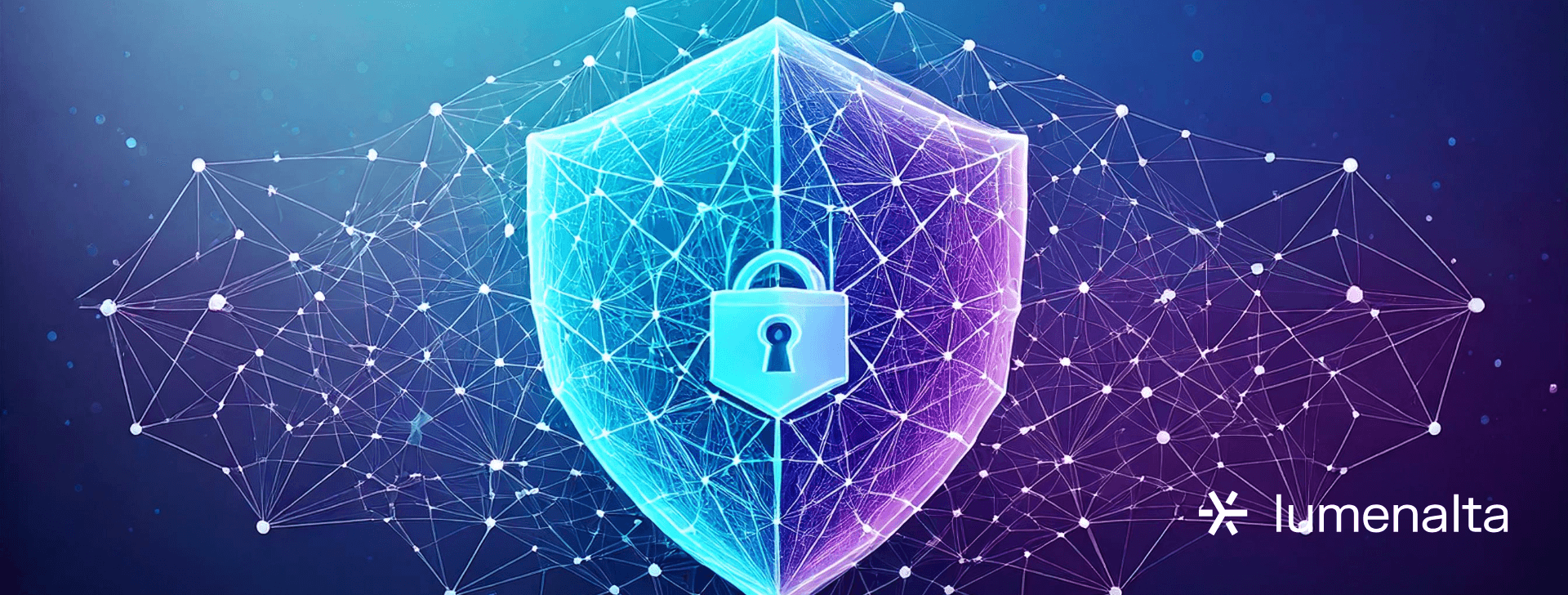
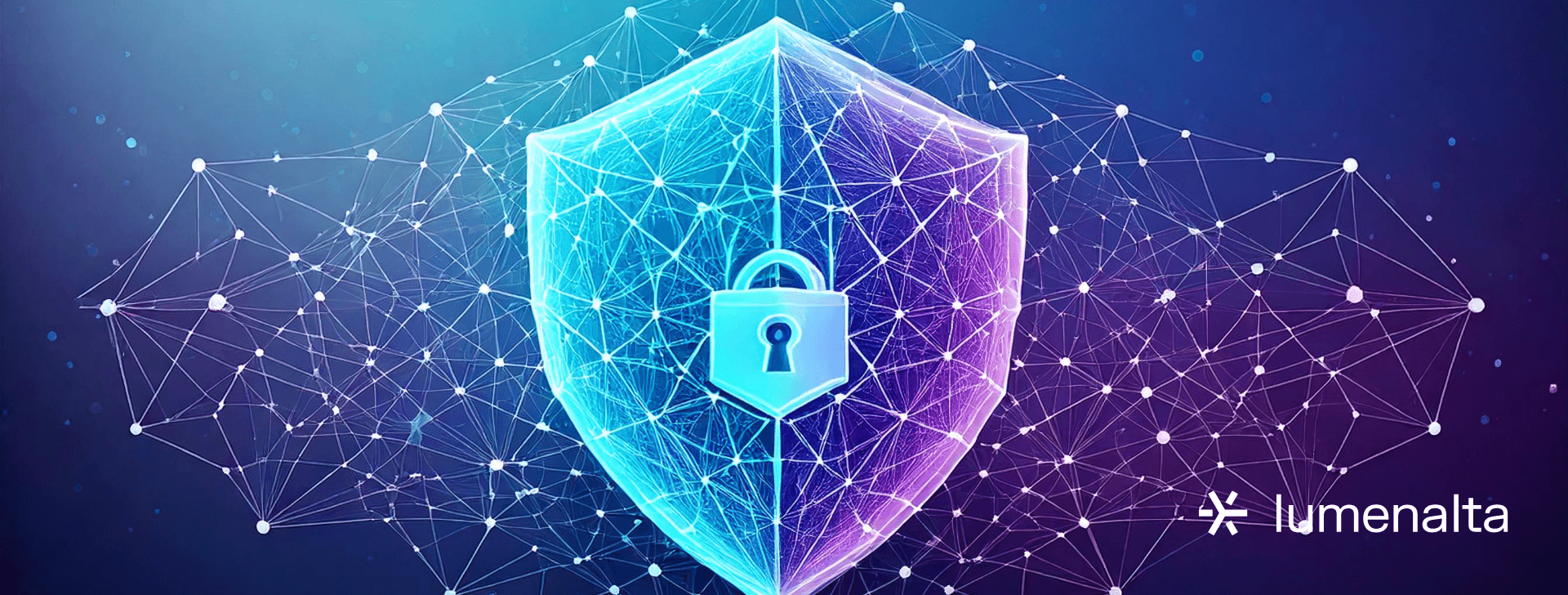
Data privacy vs data security
FEB. 6, 2025
4 Min Read
Data privacy vs data security determines how information is managed, protected, and used across industries.
Privacy governs how personal and sensitive data is collected, shared, and stored, while security ensures that information remains protected from cyber threats, unauthorized access, and breaches. Without a structured approach to both, businesses risk financial losses, compliance violations, and reputational harm.
Key Takeaways
- 1. Data privacy governs how information is collected, shared, and used, while data security ensures protection from unauthorized access and cyber threats.
- 2. Regulations such as GDPR and CCPA mandate strict privacy policies, making compliance essential to avoid financial penalties and reputational damage.
- 3. Encryption, access controls, and continuous monitoring reduce security risks while maintaining data integrity and confidentiality.
- 4. Businesses must integrate both privacy policies and security frameworks to prevent breaches, legal violations, and operational disruptions.
- 5. Employee awareness, compliance audits, and technical safeguards strengthen an organization’s ability to manage data privacy and security risks effectively.
What is data privacy?
"Consumers expect companies to safeguard their personal details, making data privacy a critical factor in maintaining credibility."
Data privacy refers to the control individuals and organizations have over how their personal or sensitive information is collected, shared, and used. It ensures that data is handled according to legal, ethical, and contractual obligations, preventing unauthorized access or misuse. Organizations must comply with global regulations such as the General Data Protection Regulation (GDPR) and the California Consumer Privacy Act (CCPA), which mandate transparency in data handling practices.
The concept extends beyond compliance, influencing trust and business reputation. Consumers expect companies to safeguard their personal details, making data privacy a critical factor in maintaining credibility. Failure to uphold privacy standards can result in financial penalties, reputational harm, and loss of customer confidence. Organizations that prioritize data privacy establish stronger relationships with users while mitigating risks associated with unauthorized data exposure.
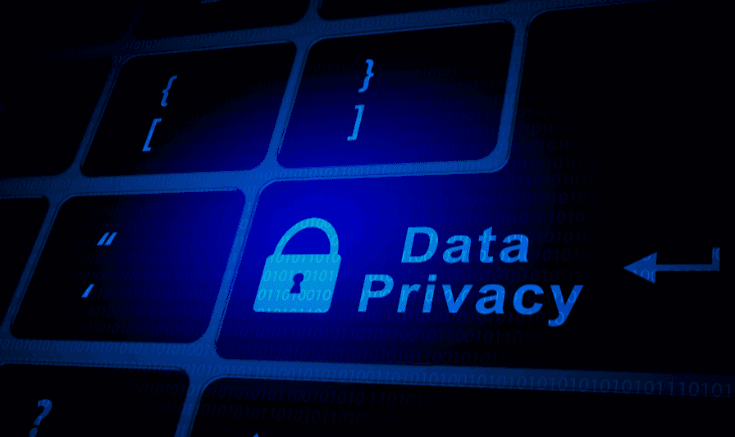
Advantages of data privacy
Organizations that implement strong privacy measures gain an edge while mitigating legal and financial risks. Prioritizing data privacy has the following advantages:
- Regulatory compliance: Adhering to laws such as GDPR and CCPA prevents legal penalties and ensures ethical data management. Failure to comply with these regulations can result in substantial fines and operational disruptions.
- Customer trust and loyalty: Consumers expect businesses to safeguard their personal data. Transparent privacy policies and secure data handling practices foster confidence, encouraging long-term relationships and repeat transactions.
- Reduced risk of data breaches: Strict privacy controls limit unauthorized access to sensitive information, reducing the likelihood of cyberattacks and insider threats. Proactively securing user data minimizes the potential for financial losses and reputational damage.
- Stronger brand reputation: Businesses known for protecting customer information differentiate themselves in the marketplace. A commitment to data privacy enhances credibility, influencing customer decisions and stakeholder confidence.
- Increased operational efficiency: Implementing structured privacy policies streamlines data governance, making it easier to manage, access, and protect information. Organized data privacy frameworks reduce redundancies and improve compliance processes.
- Enhanced legal protection: Organizations that prioritize data privacy have stronger legal standing when addressing disputes or regulatory inquiries. A well-documented privacy strategy demonstrates diligence in protecting user information and reducing liability risks.
Privacy regulations and consumer expectations continue to move, making data privacy a fundamental aspect of business success. Organizations that treat privacy as a strategic priority rather than a compliance obligation gain long-term benefits in trust, security, and operational stability.
What is data security?
Data security protects digital assets from unauthorized access, corruption, or theft by implementing technical measures such as encryption, authentication protocols, and access controls. It ensures data remains confidential, intact, and accessible only to authorized users. Unlike data privacy, which governs how information is collected and shared, data security focuses on safeguarding stored and transmitted data from cyber threats and accidental exposure.
Cyberattacks, insider threats, and system vulnerabilities pose significant risks to organizations, making data security an essential aspect of risk management. Preventative measures, including intrusion detection systems, firewalls, and endpoint protection, help secure sensitive information from breaches and disruptions. Businesses that invest in strong security protocols not only comply with industry regulations but also minimize financial and reputational damages caused by cyber incidents.
Advantages of data security
"Unauthorized access remains a leading cause of data breaches. Encrypting sensitive information at rest and in transit ensures that intercepted data remains unreadable without proper decryption keys."
Implementing strong security measures reduces the likelihood of cyber threats and operational disruptions. The following advantages illustrate why data security is a necessary investment for businesses:
- Protection against cyber threats: Safeguarding data with encryption, firewalls, and intrusion detection systems prevents unauthorized access and reduces the risk of ransomware attacks, phishing attempts, and malware infections.
- Regulatory compliance: Security frameworks align with global data protection laws such as GDPR and the Health Insurance Portability and Accountability Act (HIPAA). Meeting these requirements minimizes the risk of fines and legal actions.
- Prevention of financial losses: Cyberattacks result in revenue loss, legal fees, and recovery costs. Strengthening security measures reduces the financial impact of data breaches and mitigates potential business disruptions.
- Business continuity and disaster recovery: Secure backup systems and disaster recovery plans ensure data remains accessible during unexpected incidents such as system failures, natural disasters, or cyberattacks. Implementing redundancy measures helps maintain operational stability.
- Protection of intellectual property: Organizations store proprietary data, trade secrets, and confidential business strategies. Preventing unauthorized access safeguards intellectual assets.
- Reduced risk of insider threats: Implementing multi-factor authentication (MFA), role-based access controls, and user activity monitoring reduces the likelihood of data leaks caused by internal employees or contractors.
Data security is essential for preventing unauthorized access, mitigating financial risks, and maintaining business operations. A well-structured security strategy safeguards sensitive information from external attacks and internal vulnerabilities, ensuring compliance and operational resilience.
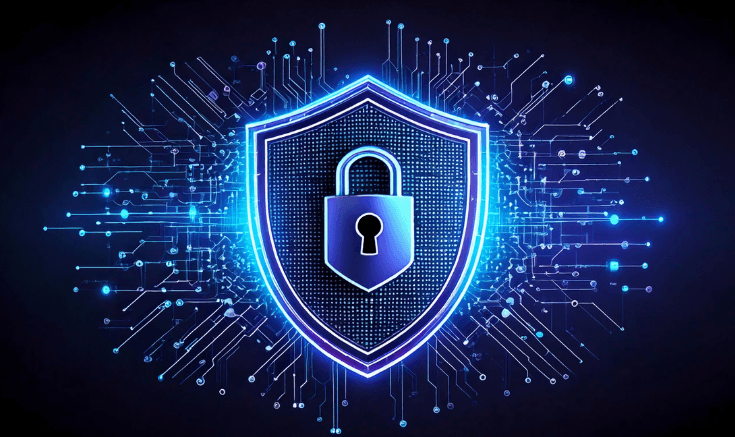
Difference between data privacy vs data security
The main difference between data privacy and data security is that data privacy focuses on controlling how personal or sensitive information is collected, shared, and used, while data security protects that information from unauthorized access, breaches, or corruption. Privacy determines the policies and regulations governing data usage, while security enforces the technical safeguards needed to protect it.
Both concepts are essential for maintaining compliance, trust, and operational integrity, but they serve different functions within data governance.
| Aspect | Data privacy | Data security |
|---|---|---|
| Focus | Governs data collection, sharing, and usage | Protects data from unauthorized access and threats |
| Purpose | Ensures personal and sensitive data is handled lawfully | Prevents data breaches, leaks, and cyberattacks |
| Methods | Compliance policies, user consent, anonymization | Encryption, firewalls, access controls, intrusion detection |
| Regulatory requirements | GDPR, CCPA, HIPAA, and other privacy laws | ISO 27001, NIST, SOC 2, and cybersecurity standards |
| Risk mitigation | Reduces exposure to legal penalties and reputational damage | Protects against financial losses, operational downtime, and cyber threats |
| Impact on business | Builds customer trust and ensures ethical data handling | Strengthens infrastructure resilience and compliance readiness |
Data privacy and data security alongside to ensure that information remains both properly managed and well-protected. An organization that prioritizes one without the other increases its exposure to legal, financial, and reputational risks.
Which is more important: Data privacy vs data security?

Data security and data privacy are equally important, but their significance depends on the specific risks and priorities of an organization. Security measures protect against unauthorized access, ensuring that data remains intact and confidential. Privacy regulations, on the other hand, govern how information is collected and used, preventing legal violations and ethical concerns.
A business handling sensitive customer data, such as financial institutions or healthcare providers, must balance both aspects. Security safeguards protect against breaches, while privacy frameworks ensure compliance with regulations such as GDPR and HIPAA. Organizations that focus solely on security without addressing privacy concerns may face legal repercussions, while those that prioritize privacy without adequate security measures remain vulnerable to cyber threats.
The importance of data privacy vs security depends on the industry, regulatory settings, and risk exposure. A comprehensive approach that integrates both ensures compliance, strengthens resilience, and maintains customer trust.
Data privacy vs data security in big data
Massive data volumes present significant challenges for both data privacy and data security. Organizations that process large-scale datasets must implement structured governance strategies to maintain compliance while protecting sensitive information from cyber threats.
Privacy concerns arise when companies collect, store, and analyze customer data without proper consent or transparency. Regulations mandate that organizations disclose how data is used, ensuring that users have control over their personal information. Failure to comply with these regulations can lead to legal penalties and reputational harm.
Security risks escalate as large datasets become prime targets for cybercriminals. Threat actors exploit system vulnerabilities to access sensitive business and consumer data, leading to financial and operational disruptions. Encryption, access controls, and real-time threat monitoring help mitigate these risks by preventing unauthorized access and minimizing exposure to attacks.
Balancing privacy and security in big data requires a combination of compliance policies and robust technical safeguards. Businesses that integrate privacy-first frameworks while strengthening security measures can protect valuable data assets, reduce regulatory risks, and maintain customer trust.
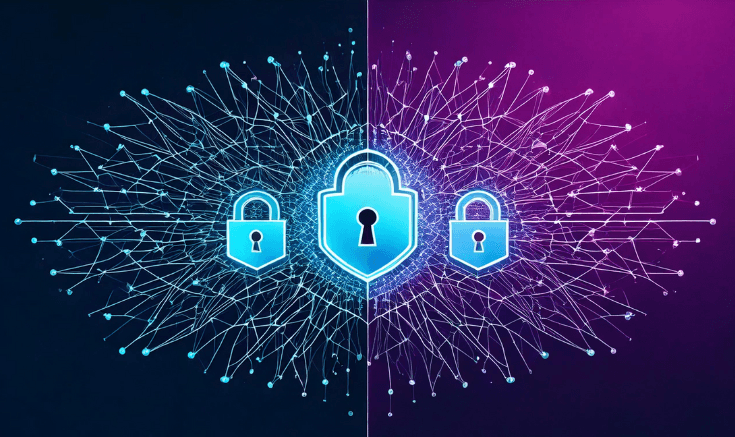
Managing risk for data privacy and data security
Organizations must proactively address risks associated with data privacy and data security to prevent legal, financial, and reputational consequences. A comprehensive strategy includes regulatory compliance, technological safeguards, and employee awareness programs. The following key areas help mitigate risks effectively.
Compliance with privacy and security regulations
Regulatory frameworks define how businesses collect, store, and protect data. Adhering to laws such as GDPR, CCPA, and HIPAA ensures transparency and accountability. Regular audits, data protection impact assessments, and documentation of compliance measures reduce legal exposure.
Implementing strong encryption and access controls
Unauthorized access remains a leading cause of data breaches. Encrypting sensitive information at rest and in transit ensures that intercepted data remains unreadable without proper decryption keys. Access controls, including multi-factor authentication and role-based permissions, prevent unauthorized users from exploiting critical systems.
Educating employees on data security best practices

Human error is a common factor in security incidents. Regular training sessions on recognizing phishing attempts, handling sensitive data, and following company policies strengthen an organization’s security posture. Employees who understand privacy requirements and cybersecurity risks help reduce accidental data exposure.
Establishing continuous monitoring and threat detection
Real-time security monitoring identifies unusual activity and potential cyber threats before they cause harm. Implementing endpoint detection and response (EDR) solutions, security information and event management (SIEM) systems, and intrusion prevention mechanisms enhances visibility into network traffic and system vulnerabilities.
Developing an incident response and recovery plan
A well-documented response plan minimizes damage when security or privacy breaches occur. Organizations must establish protocols for detecting, containing, and remediating threats while ensuring timely notification to affected users and regulatory authorities. Regular testing of recovery procedures improves preparedness for future incidents.
Mitigating risks for data privacy and security requires a multi-layered approach that combines compliance, technology, and workforce readiness. Businesses that adopt a proactive risk management strategy strengthen their defenses against evolving threats while maintaining regulatory integrity and user trust.
Protecting sensitive data is more than just a compliance requirement—it’s the foundation of ethical, secure, and future-ready business operations. Prioritizing both data privacy and data security ensures long-term resilience while building trust with customers and stakeholders. At Lumenalta, we help businesses with tailored solutions designed for regulatory alignment, risk mitigation, and operational efficiency. A stronger data strategy starts here.
Table of contents
Common questions about data privacy vs data security
What is the difference between data privacy and data security?
Why is data security important for businesses?
How do data privacy regulations affect businesses?
Can a company focus on data privacy without strong security?
What are the best practices for maintaining data privacy and security?
Want to learn how data privacy can bring more transparency and trust to your operations?




